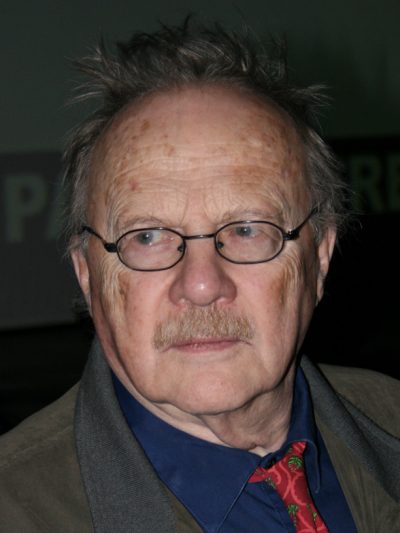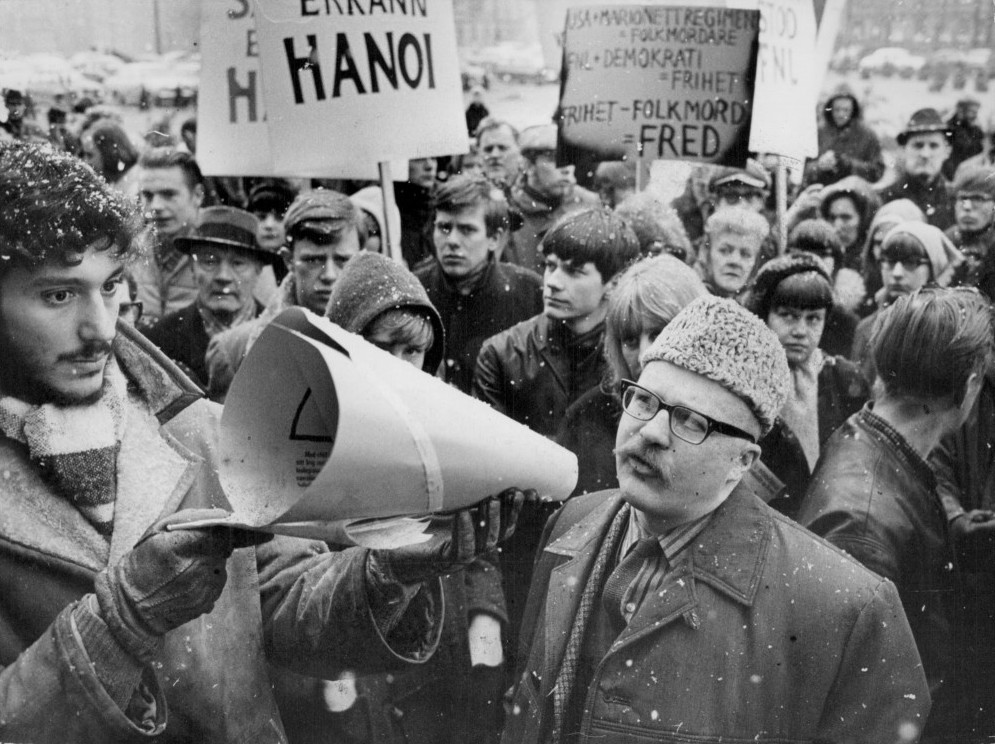Jan Myrdal, the Eternal Rebel, Dies at 93
Mike Powers, for many years a close friend with the author Jan Myrdal, who just passsed a way, writes an obituary for our englishspeaking friends.

“Even as many cultural figures in Sweden after his death were quick to witness to his importance, they pissed on his memory by pointing out the many issues they disagreed with him. Their problem was often that they never read what he said correctly”.
The Swedish writer Jan Myrdal, a giant among European intellectuals, has passed away after a 75 year career as a political writer of thousands of articles and more than 100 books. Above all he was a political activist who in the spirit of Karl Marx believed it was more important to change the world than only to understand it. But he was best known for his encyclopedic knowledge of social history and discourse and his constant encouragement to readers to “Go to the sources!” to be able to speak truth to those in power. In his youth he was an organized communist but later chose to describe himself as an independent socialist thinker who could contribute more to popular struggles in his role as a disciplined and factually unchallengeable political writer.
An avid reader as a youngster he credits the influence of a school year in NY as a child with his early exposure to the debates of class struggle and mass politics in the era of the New Deal and his appreciation of freedom of speech as well as American writers.

Jan Myrdal speaking at a demonstration against the Vietnam War at Medborgarplatsen in Stockholm, 1966. (Public Domain)
One of his first books, The Careerist, exposed the corruption and degeneration afflicting the reformist social democratic movement whose ideals had begun to transform Sweden into a modern welfare state. In the sixties he began producing his travel books which examined societies he stayed long periods in, such as Turkmenistan and Afghanistan and Angkor Wat as well as the first of a series on Life in a Chinese Village during the Cultural Revolution which was followed by many return visits.
But it was his book Confessions of a Disloyal European that was to have an enormous impact on anti-imperialists and leftists in many countries with its third world perspective. His wife of more than 50 years, the painter and photographer Gun Kessle worked with him in documenting these travels. He returned to Sweden after these travels and became a leading Vietnam activist and supporter of national liberation struggles.
During these years he also finished his monumental work India Waiting. His anti-imperialism led him to visit the Khmer Rouge held areas during the Vietnamese invasion and the liberated Naxalite controlled areas of India in his 80´s. He participated in the World Tribunal on Iraq in Istanbul in 2005 where he compared the war propaganda used by the imperialists in the two world wars which he had explored in his Selling war like margarine with the false language used by the US in the Iraq invasion and occupation. Al Intiqad, the magazine of Hezbollah, described him as one of Europe´s leading intellectuals and published a long interview with him in which he discussed the historical role of religion and war.
But he was also an important figure in Swedish literature, like the Swedish writer August Strindberg, who he considered his inspiration. His writing had a distinct, direct style, often using spoken and understood language and moving comfortably and without difficulty between tenses so that the past became the present for the reader. His texts were often long, logical reasoning with countless references or asides for further insights. He was as challengeable to read as a Chomsky who did not use commas.
Myrdal was famous for his texts on Balzac, Twain and Dickens, all of whose work he explored and cited in his own writings. He became famous as a prose writer with his I-stories. The first three, The Childhood Trilogy used the perspective of growing awareness of a child growing up to young adulthood. This resulted in his victory in a court case for libel from his Nobel Prize winning parents.
The series continued with Tomorrows, where as a young teenage radical he commits himself to the political and personal discipline that the struggle demanded. of a revolutionary committed to making a better world. His last work in this genre used the perspective of old-age to relook at the recollections of his part. Even that became a bestseller in Sweden.
A true historical materialist all his writings were characterized by an underclass perspective against the superstructure of capitalist politics and culture. He was one of the founders of Folket i Bild/Kulturfront (People in Pictures/the Cultural Front) a broad based movement and magazine to defend People´s culture, freedom of speech and anti-imperialism, in which he continued to have a regular column for almost half a century.
Myrdal was a controversial figure, admired greatly or hated by his detractors. He had no regrets for the positions he took. Even as many cultural figures in Sweden after his death were quick to witness to his importance, they pissed on his memory by pointing out the many issues they disagreed with him. Their problem was often that they never read what he said correctly. For those of us who followed his writings for half a century, he provided inspiration and pointed out a way to understand our world and to act to change it.
*
Note to readers: please click the share buttons above or below. Forward this article to your email lists. Crosspost on your blog site, internet forums. etc.
Featured image: CC BY-SA 3.0

